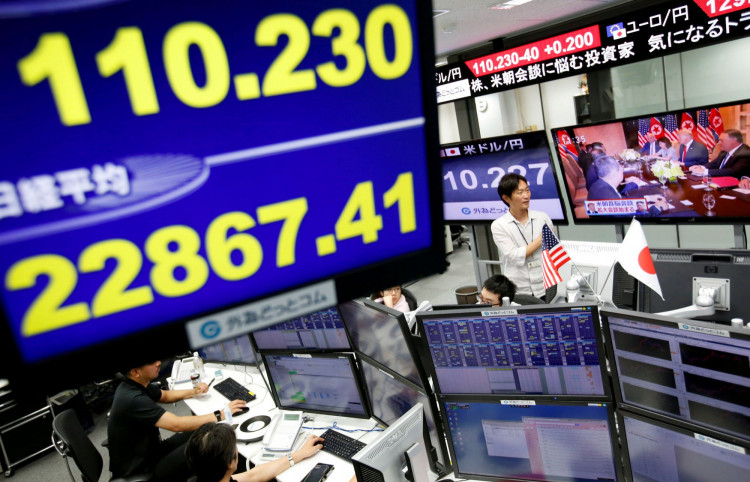During Monday's afternoon trade, Asian stocks were lower compared to last week's yield. The deterioration was said to emanate after the Chinese economic data for May showed the country fell short of inflation estimates.
This Monday, investors were said to have weighed the potential impact of recent spikes in pandemic cases within the region. Japan's Nikkei 225 dropped by 1.28 percent, while the Topix index fell by 0.66 percent. The South Korean Kospi also declined by 0.72 percent during Monday's afternoon trade.
Mainland Chinese stocks, on the other hand, were mixed. The Shanghai Composite index remained stable, the Shenzhen component improved by 0.85 percent. In comparison, Hong Kong's Hang Seng index dropped by 0.62 percent.
Similarly, the S&P/ASX 200 dropped by 0.8 percent. Overall, the MSCI Asia ex-Japan index declined by 0.72 percent.
The declines were said to be caused by the increasing number of coronavirus cases within the region. The district capital of China, Beijing, allegedly declared an emergency after a cluster of infections emanated from its wholesale market. The same goes with US states such as Texas, North Carolina, and Stateside.
According to a senior foreign-exchange strategist at the National Australian Bank Rodrigo Catril, news over the weekend did not ease the concerns of investors. He claimed that they are still reluctant to sell big over risks of the implementation of new round containment measures.
He also claimed that there is an expected rate increase in the number of cases upon the reopening of economies. Hence, he claimed that their doubt surrounds detecting measures that might not be rendered efficient in allowing localized containment measures without shutting the whole economy down.
Independent analyst Fraser Howie also said that the recent outbreak in Beijing, a lockdown is highly unlikely. He claimed that the Chinese have realized that a lockdown of healthy people would crash the economy. This would also cause long-term problems that might not be solved by reopening economies.
Last Monday, the Chinese economic data for May was released showing that the country missed reaching its economic expectations. Industrial production in China increased to 4.4 percent on an annual basis. Still, it was lesser than the five percent expectations from Reuters analysts.
Retail sales, on the other hand, declined by 2.8 percent on an annual basis for May as well, which was worse than the two percent expected decreased rate.
Finally, oil prices were lower during Asian trade hours today. The international benchmark Brent crude futures declined by 2.07 percent to 37.93 per barrel. In comparison, US crude futures dropped by 3.06 percent at 35.15 USD per barrel. The US dollar index was at 97.076 USD, the Japanese yen at 107.016 USD, and the Australian dollar at 0.6824 USD.





